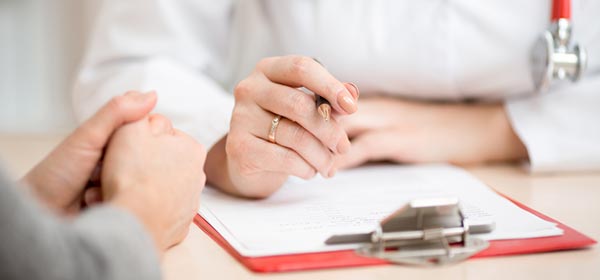Being prepared when visiting the doctor is the best way to ensure you get the right treatment. These 10 questions will help you to avoid unnecessary tests and stay in control of your health.
Is this test really necessary?
The tests available in modern medicine can be very positive – they frequently save lives, and they can give great peace of mind when the results are negative. The number of tests being ordered by doctors over the past 30 years has, however, risen exponentially. Elaborate, expensive tests are not always necessary, and it is important to discuss with your doctor why he or she feels that a particular test is imperative for your health. One test which can have negative side effects is the common X-ray. Having any sort of X-ray, such as a CT scan, exposes you to radiation. While an X-ray can be an important diagnostic tool, having lots of X-rays might be exposing you to unnecessary radiation. There is also the anxiety which goes along with having tests. For some people the results might give peace of mind, but for others the stress of waiting on results outweighs the benefits of knowing what, if anything, is wrong. Asking your doctor ‘is this test really necessary’ could save you time, money and stress later on.
Do I really have this disorder?
When a healthy person is told that he or she has a physical illness or a mental disorder it can change their lives forever. It can also result in a barrage of unnecessary, expensive tests and treatments which can cause more problems than they solve. If your doctor has suggested you might have a disorder, ask whether your results are borderline, whether it is possible to get a false negative on the test and how they, as your health professional, can be 100 per cent sure that they’ve made the right diagnosis.
Is it genuinely important that I get screened?
Screening means regularly testing healthy people for particular diseases. Some screening programs are valuable and help to save lives. Others are more controversial, with some research showing that regular, ongoing screening can cause more harm than good. Do some research yourself and ask your doctor whether it is really necessary for you to be a part of the screening program.
What are my options?
Often your doctor will decide what he or she thinks is your best treatment option, without presenting you with the full range of possibilities. It is important to ask whether you have treatment options. Two options which rarely get a mention are to simply not treat an ailment, if it is causing little or no harm to the patient, or to undertake ‘watchful waiting’, where the patient is monitored but invasive treatment is postponed until it becomes truly necessary. Asking your doctor upfront about your treatment options will help you to feel that you’ve made the right decisions about your health.
How well can I expect this treatment to work?
Much of the research into the effectiveness of certain drugs or treatments is funded by the pharmaceutical companies – those most likely to benefit from promoting the drug or treatment. We therefore tend to have an overly optimistic view of how much good a treatment will do. It is also important to remember that even when a treatment has a well-documented positive effect, no drug is 100 per cent effective, meaning it won’t always work for everyone. You need to find out how well the treatment is likely to work for you.
What will my best- and worst-case scenarios look like?
Relating to the previous question, it is also important to be informed about the best and worst possible outcomes if you do decide to undertake a treatment. If the worst case-scenario is that the drug might cause you harm, is the best-case scenario good enough to make up for that risk? How likely are you to end up in the best or worst case scenario?
What are the side effects?
Side effects from medication and complications from operations are more common than many people realise. Your doctor is unlikely to tell you about every possible side effect a drug or treatment can have. For one, they don’t want their patients imagining side effects, and for another, most drugs have very extensive lists of side effects contained in the drug information pamphlet. Asking about possible side effects is less about getting that list read out to you, and more about asking how likely you are to experience them. It is also important to ask what action you should take if you do experience side effects – should you simply lower the dose or head straight to the hospital emergency room?
What is the evidence?
As mentioned previously, pharmaceutical companies are often the ones funding drug research. It is important to ask your doctor where the research promoting a particular drug or treatment comes from, and how it would stand up to scrutiny.
Will someone else profit from my treatment?
Those who could potentially profit from your ailments being treated are: pharmaceutical companies, patient groups, private medical corporations and even your doctor. Find out who stands to benefit from the treatment your doctor is recommending, because the answers can be alarming.
What can I do to help myself?
You only see your doctor for a brief period every so often. The person who spends the most time with you is you, making you the best person to look after your health. Taking an active role in becoming and staying healthy is the best step you can take medically, so ask your doctor exactly what you can be doing to help ensure you don’t see them too often.
Do you have a question you always ask your doctor? Or is there something you wished you’d asked before you agreed to a test or treatment?
Related articles:
Find a doctor or chemist
Health checks: when to have them
Should you heed all health advice?

